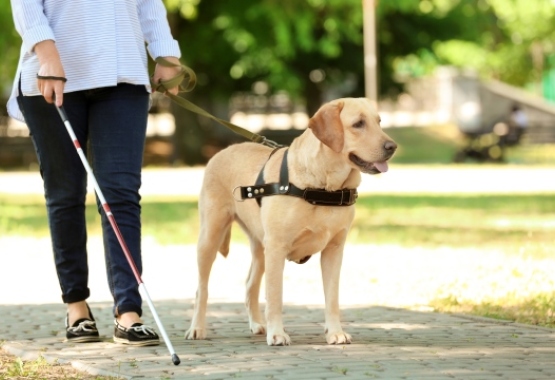Around Greece with Your Pet
Insider Tips
What makes an ideal holiday varies from person to person. Some seek rejuvenation through relaxation and luxurious treats, while others crave non-stop thrills, immersing themselves in the excitement of every moment. For many, the sweet spot lies somewhere in between. However, there's a unanimous sentiment that perfect holidays are those cherished alongside our loved ones—and for some, those loved ones come with wagging tails and furry paws. If you're
travelling to Greece with your pet, let us offer you some tips to help you navigate the country with ease.
Getting Around the Country with your Pet
When out and about in Greece, you’re required to have your passport or some form of photo ID with you at all times—and so is your pet, so make sure to always have their passport or health certificate at hand.
Greek legislation provides that the transport of small animals (weighing not more than 10kg) is allowed in all road, rail and fixed-route public transport as well as in taxis and passenger ships, provided they are placed in a secure travel crate or carrier and accompanied by the owner or by the person responsible for them during transport. Larger dogs (over 10kg) can travel with you by rail, provided they are placed in a secure travel crate or carrier, which is then transported in the luggage coach.
Passenger ships have a limited number of kennels on board for larger pets and often have dedicated areas for animals and pet hygiene. Some operators also offer pet-friendly cabins on longer routes. While onboard, animals are required to remain in their crates or carriers and/or must be kept on the lead and wear a muzzle while in common areas.
Remember that taking your pet on the ferry, train, coach, or taxi might incur an additional charge and that different carriers and operators may have different requirements and capacity limits for the transport of animals. Make sure you check the amenities, fees and policies of individual providers before you travel and let your carrier know at the time of booking that you will be travelling with your pet or assistance animal.
Certified guide dogs and assistance dogs, regardless of size, can be transported without a travel crate or muzzle but must be kept on the lead at all times. In public transport, such as trains, these animals are also allowed access to restaurant coaches.
Pet-friendly accommodation
From luxury resorts in the Peloponnese and the Athens Riviera to family-run B&Bs in charming mountain towns like Metsovo and independent campgrounds in Halkidiki and the Aegean islands, there are plenty of pet-friendly accommodation options throughout Greece.
While not all providers accept pets, many do, and you’re sure to find something to suit your needs and budget. Booking a stay with your pet will likely incur extra charges, and there may be specific guidelines and policies regarding the type, size, breed and number of pets allowed. Depending on the establishment, you may enjoy access to additional amenities, ranging from dog beds and pet play areas to grooming and pet sitting services; in some cases, availability might vary depending on the season, so always enquire ahead to get the most up-to-date information and ensure a comfortable stay.
Dining out
With the exception of guide dogs and assistance dogs, animals are not allowed inside restaurants. That said, thanks to the country’s fantastic Mediterranean climate, cafés and restaurants usually have outdoor seating areas, including patios and gardens, that are popular with patrons regardless of the season.
As always, it’s best to call ahead to confirm that it’s okay to bring your pet; some places might not have the space to safely accommodate your four-legged companion, while others may be able to provide water bowls and dog treats to make sure you both enjoy a delicious experience.
Dog-friendly beaches
Greece boasts numerous dog-friendly beaches that provide excellent opportunities to run, play and splash in the water; these can be found across the country. You’ll have to keep your dog close at all times and use a lead (you are advised to carry a muzzle with you). Dogs are not allowed on Blue Flag beaches unless they are service dogs. You must pick up after your dog and ensure your dog doesn’t bother other beachgoers.
Visiting archaeological sites
Since April 2023, as per the new Ministry of Culture regulations, dogs are now welcome at more than 100 key archaeological sites across Greece. A further 110 sites that don’t allow dogs have been equipped with kennels (complete with comfy bedding, toys, and water bowls) that can accommodate your dog, free of charge, for up to two hours while you explore the site. For practical reasons, dogs are still not allowed at sites that tend to get very crowded, such as the Acropolis of Athens or Knossos in Crete, and are not permitted in ancient theatres, temples, tombs, and monuments with sensitive mosaic floors.
Your dog must be at your side at all times and must be kept on the lead; larger dogs will also need to wear a muzzle. Of course, it’s your responsibility to clean up after your dog and dispose of waste properly, as well as to ensure that your dog doesn’t cause any disturbance or damage.
Exploring Greece with your furry friend can be a delightful adventure with a little preparation and consideration. Remember to keep your pet's documentation handy while travelling, and acquaint yourself with the specific requirements and policies of different transportation providers, accommodation etc. By prioritising your pet's comfort, safety, and well-being, you can create cherished memories together while
exploring our beautiful country.





